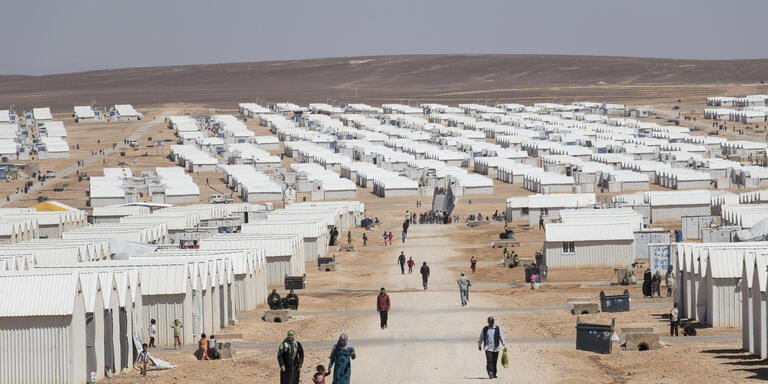
The innovative project is a collaboration between the Norwegian Refugee Council (NRC) and the international non-profit organisation iPlatform.
New skills and renewable energy
Azraq is situated in the stony desert 100km north of the Jordanian capital city of Amman. As part of the Norwegian Refugee Council’s (NRC) youth skills training programme in Jordan, Syrian youth participating in an electricity course in the camp will learn how to install and maintain solar panels. This way, they provide the centre with light using a renewable energy source.
“Learning how to install and maintain the solar panels will give the students valuable practical skills that they will use now and in the future” says NRC’s Youth Programme Manager, Paul Fean.
We hope this is the first of many innovative educational opportunities we will be able to deliver to displaced peoples with the support of UNHCR and the NRC.Professor Malik R. Dahlan, founder of iPlatform
Pioneering initiative
"iPlatform is proud to be working with NRC on this pioneering initiative. After visiting the Zaatari refugee camp in Jordan last year and talking to the young people living there, our team discovered that there was a real demand and value for solar energy education. We hope this is the first of many innovative educational opportunities we will be able to deliver to displaced peoples with the support of UNHCR and the NRC," says founder of iPlatform, Professor Malik R. Dahlan.
Some 120,000 registered Syrian refugee youth aged between 15 and 24 years are currently living in Jordan and about 25,000 of them live in formal refugee camps. According to UNICEF, many have not completed high school or enrolled in universities and they have limited access to paid employment or training opportunities. The limited access to legal employment among Syrian refugees can create a sense of disempowerment for many of them.
Meeting energy needs
In Jordan, NRC offers three month training courses like tailoring, barbering, IT and electricity, in addition to life skills, literacy, numeracy and online learning courses, to provide a place where youth can learn and develop in safe and positive surroundings.
The students engaged in solar panel installations and other NRC courses acquire valuable skills for their future and also provide their community with sustainable energy. In addition, the solar energy helps to meet the energy needs of the thousands living in Azraq refugee camp.




